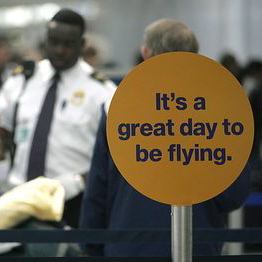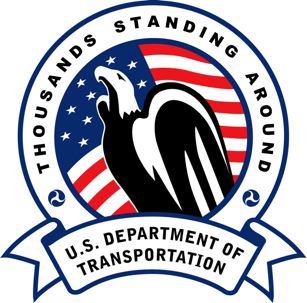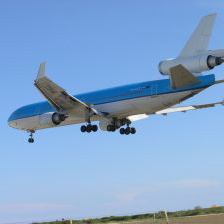Travel News
Pilot Unions Opt Out Of New TSA Technology, Citing Safety Concerns
Pilot Unions Opt Out Of New TSA Technology, Citing Safety Concerns
 Pilot unions from two of the United State’s biggest airlines
Pilot unions from two of the United State’s biggest airlinesare telling pilots to just say “no” to the full-body scanners popping up in
airport checkpoints around the country.
Instead, pilots belonging to unions at American Airlines and United Airways are
being told to bypass the scanners, which have the ability to see beneath
clothing, and opt for a hand search done by a Transportation Security
Administration (TSA) agent.
The unions, which have more than 14,000 members between them, say that full-body
scanners are not only invasive and an intrusion on privacy, but also that
radiation emitted by the machines is dangerous.
The safety of full-body scanners has been a hot-button issue in the last few
weeks.
A recent Food and Drug Administration (FDA) review has stated that backscatter
technology, which is used in some full-body scanner machines, poses a
“miniscule” health risk to individuals.
 According to the FDA, several groups of experts have evaluated
According to the FDA, several groups of experts have evaluated
the radiations safety issues associated with fully body scanning backscatter
technology and have found that “full-body X-ray security products and practices
do not pose a significant risk to the public health.”
Currently, security-imaging machines either use backscatter X-ray technology or
millimeter-wave technology. Backscatter technology has raised concerns because
it uses small doses of ionizing radiation.
Millimeter-wave technology has not received the same level a scrutiny, but
radiation experts contend the technology poses no known health risks.
As of the beginning of November, there are 189 backscatter units and 152
millimeter-wave machines used in more than 65 airports in the United States. The
TSA hopes to increase the number of machines to 1,000 units by the end of 2011.
However, some scientists say that not enough is know about the long-term effects
of small-doses of X-ray radiation over time, especially on frequent fliers like
pilots and on people sensitive to radiation like children.
For those still skeptical about the FDA’s findings, the alternative “hand
search” is a better, but equally evasive option.
Early this month, the TSA revealed that it would supplement the pat-down search
with a more thorough hand search, which has been nicknamed the “X-rated
pat-down.”
Learn more: TSA’s Virtual Stripsearches, X-Rated Pat-Downs Fuel Privacy
Backlash
 One US Airway’s pilot compared the new hand search to being
One US Airway’s pilot compared the new hand search to being
“sexually molested,” said a statement by the US Airline Pilots Association.
Many airline organizations are urging the TSA to make special dispensations for
airline employees, like allowing the pat downs to be done in private.
The nation’s largest pilot’s union, the Air Line Pilots Association is said to
be working with the TSA to find alternatives for pilots. The Air Line Pilots
Association has refrained from telling members to avoid scanning machines.
Many pilots’ organizations are also pushing the TSA to either streamline or
eliminate the screening they receive. Since pilots receive background checks,
they should be able to bypass security checks, they argue.
The TSA has stated that they stand by their security measures, citing that
terrorists are creative and “willing to go to great lengths to evade detection.”
The administration has stated that they are willing to work on a compromise with
pilots.
By Adriana Padilla at PeterGreenberg.com.
Related Links: USA Today, FDA.gov, CNN
Related Links on PeterGreenberg.com:












